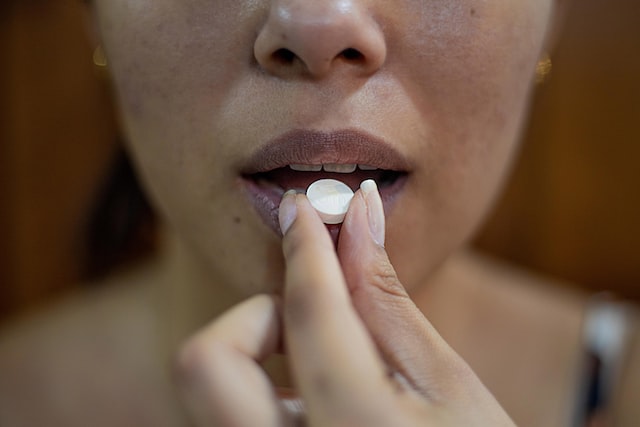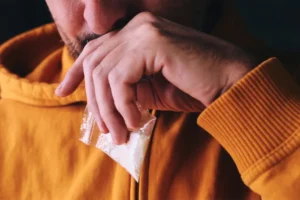What Happens When You Overdose on Pills?

Medicines are potent chemicals that can have adverse physiological effects if taken in the wrong amounts. Using pills for reasons other than prescribed (for their euphoric effects) or accidentally ingesting large doses of a medication can lead to overdose. Overloading the body with pills can interfere with its ability to function correctly, causing negative short and long-term health consequences.
Over 30,000 people have died from opioid-related overdoses in Canada since 2016, more than from other major accidental death causes combined. Most cases of overdosing are non-fatal, but an overdose is always a cause for concern. We explain why people overdose on pills, what happens when you overdose on pills, and how to get help.
Key Takeaways
- An overdose occurs when a person consumes a toxic amount of a drug or a combination of drugs.
- An overdose can be accidental or intentional and may have mild to life-threatening consequences.
- Getting immediate medical help for an overdose is crucial to prevent death or lasting damage.
What is an Overdose?
An overdose occurs when you take more than the normal or prescribed amount of a drug which may result in adverse physiological consequences. Overdoses may be accidental or deliberate, and the consequences may be mild, moderate, or severe. An overdose is different from poisoning, even though both may have similar effects. While overdose occurs when a toxic amount or a combination of drugs overwhelms the body, poisoning occurs when you are exposed to toxic amounts of pills or other substances without your knowledge.
The most addictive drugs carry the highest risk of overdose as users are likely to ingest higher doses than the body can safely process. Most overdose cases may not lead to death, but a large overdose can stop respiration and cause death within a short period. Even when an overdose does not lead to death, it could still cause severe consequences like permanent organ damage if not addressed immediately. An overdose requires immediate medical attention, and you should call for emergency help if you know or think someone is overdosing.
Are you or your loved one struggling with an addiction? Call 1-855-499-9446 now and get the help you or your loved one needs, or request a call, and we will take care of the rest.
Why Do People Overdose on Pills?
Like the question of why people do drugs, there is no single answer to why people overdose on pills. Many factors contribute to overdosing, and the following are some of the most common reasons people overdose on pills:
History of drug addiction or misuse
Addiction is a brain illness that makes an individual unable to stop using a drug despite obvious negative consequences. If a person is an addict or continues to abuse drugs, chances are they’ll overdose eventually.
Self-medication
Self-medicating with prescription drugs can also lead to overdose. People who use drugs without a prescription are likely to overdose, especially if they’re using multiple drugs at the same time.
Peer pressure
Younger people often start using drugs due to influence from their peers, this behavior can get out of control and lead to overdose.
Improper storage of drugs
Drugs not properly stored can be accessed by curious kids who are likely to put objects in their mouths. They can open drugs that are not sealed or stored correctly and accidentally overdose on pills.
Suicide attempts
Some cases of overdose happen due to deliberate attempts by individuals to end their lives.
How Long Does it Take for an Overdose on Pills to Take Place?
Drugs affect individuals differently, and the rate of drug metabolism influences how long it will take before an overdose occurs. Factors that affect drug metabolism and how long it takes before a person overdoses on a pill include:
- Genetic factors
- Amount of drug ingested and the speed at which it was consumed
- Drug potency (drugs sold on the street are mixed or cut with other substances, and their potency can vary widely among dealers)
- Age and weight of the individual
- Drug tolerance level (how much of the drug the individual’s body is used to receiving)
- Presence of alcohol or other substances that could interact with the drug
- Pre-existing liver, lung, or kidney conditions that could affect metabolism
What are the Most Common Drugs People Overdose on?
The most common drugs overdosed on include the following:
- Synthetic opioids (Oxycodone, Fentanyl, Carfentanil, and other analogs)
- Opioids (Morphine, Heroin)
- Antidepressants (Prozac, Zoloft, Cymbalta, Wellbutrin)
- Benzodiazepines (Xanax, Valium, Klonopin)
- Alcohol
- Cocaine
- Methamphetamines
The Symptoms of an Overdose on Pills
Overdose symptoms vary widely depending on the substance ingested, the quantity, and the individual. Some overdoses occur due to mixing two or more substances that have additive effects that compound their individual risks.
Possible symptoms of opioid overdose include:
- Respiratory issues (slowed, labored, or irregular, breathing)
- Pinpoint or constricted pupils.
- Unresponsiveness to noise, light, touch, or other stimuli
- Loss of consciousness
- Cyanosis (bluish lips and fingertips)
- Choking, snoring, or gurgling noises
Possible symptoms of antidepressant overdose include:
- Tachycardia ( increased heartbeat that may be regular or irregular)
- Hypotension (low blood pressure)
- Muscle rigidity
- Mental confusion
- Blurred vision
- Fever
- Depressed breathing
- Drowsiness
- Muscle twitching
- Coma
Possible symptoms of benzodiazepine overdose include:
- Slurred speech
- Confusion or Mental Impairment
- Drowsiness
- Uncoordinated movements
- Slow or shallow breathing
- Respiratory depression or failure
- Coma
Possible symptoms of alcohol overdose include:
- Vomiting
- Seizures
- Mental confusion and stupor
- Chills and shivers due to reduced body temperature
- Reduced heart rate
- Slow or irregular breathing
- Pale or clammy skin
- Loss of gag reflex (the natural reflex that prevents an individual from choking)
Possible symptoms of cocaine overdose include:
- Elevated heart rate
- Nausea and vomiting
- Chest pains
- Anxiety and panic attacks
- Paranoia
- Delirium
- Cardiovascular conditions (stroke, heart attack, circulatory failure)
Possible symptoms of methamphetamine overdose include:
- Chest pains
- Increased heart rate
- Elevated temperature and blood pressure
- Altered mental state
- Paranoia and other psychotic behavior
- Panic
- Hyperventilation (rapid breathing)
- Heart attack
- Stroke or circulatory collapse
The Risk of Overdosing on Pills
The following factors can increase a person’s risk of overdosing on pills:
Ignorance of the strength or purity of street pills
Pills sold on the street are unregulated, and it is often difficult to determine their purity. They may be cut with other substances making users more likely to ingest high doses.
Low drug tolerance
A low drug tolerance level, usually due to drug abstinence for an extended period, can lead to overdose, especially if the drug is potent or taken in high doses.
Route of ingestion
The route of administration can affect how much of a drug gets into the system. Intravenous routes of administration carry a higher risk of overdose than oral routes.
Physical and mental health issues
Physical health issues like the presence of cardiovascular diseases can worsen the effects of an overdose. Mental health conditions like depression and post-traumatic stress disorder (PTSD) can also increase an individual’s risk of overdose. The prescribed medications for these conditions may also interact with abused substances to cause an overdose.
Mixing pills
Mixing or taking multiple pills at the same time can mask the effects of certain abused substances, increasing the risk of overdose.
Using pills alone or without a prescription
Using pills without a prescription increases a person’s risk of overdose. Taking a drug alone or without supervision can also cause an overdose since there will be no one to spot and get help for overdose symptoms.
The Effects of Overdosing on Pills
Overdose effects can be mild to severe depending on the substance used and the quantity ingested. They include:
Nausea and vomiting
Nausea and vomiting are common overdose effects, especially for alcohol overdose. It can be dangerous if the person is alone or asleep, as they can choke to death on their vomit.
Seizures
Heroin, cocaine, alcohol, and other stimulant pills can cause seizures at high doses. Untreated seizures can lead to loss of consciousness and permanent brain injury.
Respiratory depression
Opioids and alcohol can cause respiratory depression leading to slowed breathing. This condition can lead to total respiratory failure, which can be fatal without medical help.
Cardiac failure
Overdosing on drugs can also lead to cardiac arrest and heart failure, which can be fatal. It’s vital to call for immediate medical help if you spot overdose-related symptoms of heart issues like wheezing, chest pain, lightheadedness, or fainting.
Coma
An individual can slip into a coma if their brain stops getting sufficient oxygen due to a pill overdose. A coma can have long-term health implications, like memory loss and brain injury, while other cases may be fatal.
Permanent organ damage
Overdosing on pills can cause injuries to vital organs like the liver, lungs, heart, and brain. There may also be permanent neurological and cardiovascular consequences.
Mental health conditions
The circumstances surrounding an overdose incident can leave the individual with symptoms of depression, anxiety, and post-traumatic stress disorder (PTSD).
How to Prevent an Overdose on Pills
The best way to prevent pill overdose is to eliminate triggers for intentional overdose or take away opportunities for accidental overdose. If you have prescription pills, ensure you only use them as prescribed. Do not combine your medications or use them with alcohol unless approved by your doctor. If you have the urge to use drugs, use your drugs with a friend and take turns spotting for each other. It’s always safer to have someone who supervises you than to take your pills alone. If you have access to a supervised consumption site, you can also access their services.
For homes with kids, all drugs should be properly sealed and stored well out of reach. People with mental illnesses may need help from friends or family to take their medication. Older adults taking medications should be taught to distinguish one drug from another. Their pills may be sorted into small containers and labeled clearly to show when they should be taken. The pills may also be filled one week at a time, so there is little risk of overdose.
If you have been abusing drugs, it’s best to quit immediately and seek professional help if you are dependent and struggling to quit. Inhaling or injecting drugs gets them faster into the bloodstream and increases your chances of overdosing. Speak to your doctor immediately if you are depressed or having suicidal thoughts.
What to Do If Someone is Overdosing on Pills
- Call 911 immediately if you know or suspect that a person is overdosing. Explain to the operator that someone is overdosing and tell them what drug(s) they are overdosing on if you know them. Keep any pill containers to show the emergency responders when they arrive.
- If the person is unconscious but breathing, place them gently on their side in the recovery position. Tilt their head back and lift their chin to keep their airways open; this helps them to breathe and will prevent them from choking if they vomit.
- The emergency operator may also walk you through steps to take if the person is not responding, including rescue breathing and cardiopulmonary resuscitation.
- If the individual is overdosing on opioids, administering one spray of Naloxone into their nostrils or one ampoule in their arm or leg or both may reverse the effects of the overdose and save their lives. Administer a second dose of the drug if they are unresponsive after two to three minutes. The person still needs medical attention even after receiving Naloxone as the effects of the drug can wear off while opioids are still in their system. Stay with the person until help arrives. Free Naloxone kits are available widely across Ontario at local pharmacies and health units.
Overdosing on Pills Treatment
Treatment for pills overdose depends on the following:
- The type of drug(s) taken
- The dose
- The time and route of ingestion of the drug
- Whether the drug was combined with any other substance
- The effect of the drug on the individual
The general steps that a healthcare team will take to treat an overdose case are:
- A comprehensive assessment of the situation by observation, blood tests, and psychological evaluation.
- Getting the drug out of the individual’s system by administering activated charcoal to bind up the drug and prevent the body from absorbing it. In cases of opioid overdose, Naloxone will be given to reverse the drug’s effect.
- Depending on the situation, the patient may be admitted to the hospital for further observation and treatment. If not, they will be sent home with instructions for continued treatment and recovery follow-up.
Recovery after an Overdose on Pills
Recovery from pill overdose depends on several factors:
- The drug(s) or combination of substances that caused the overdose
- Amount of the drug consumed
- The individual’s general health condition
- Their history of use of medication and addictive substances
- How long the person was in a critical condition before receiving medical help
Overdose will likely not lead to any lasting damage if medical help arrives on time. Complete recovery from an overdose case where there is no severe damage to organs will take a few days to weeks. Some symptoms, especially in opioid overdose cases, may take more time to heal. Unfortunately, complete recovery from an overdose may be difficult if there is lasting damage to the brain or other organs.
People who have had an overdose have a higher risk of having another, so the recovery process must involve steps to address the behavior that led to the overdose. Individuals who were on opioid prescriptions should explore alternative means of pain relief. Prescribed medications should only be used as instructed or with supervision if necessary.
Getting Help for Drug Addiction
Addiction to drugs is one of the most common reasons people overdose, and breaking free of addiction can be tough without help. Drug addiction is a disease that requires medical intervention like any other.
Help for drug addiction typically involves a multidimensional approach that aims to equip the individual with coping skills to handle their cravings. Treatment typically involves medication, therapy, rehab, counseling, and peer support.
The Canadian Center for Addictions helps people understand addictions and the healthier coping strategies available by engaging them in one-on-one counseling with certified counselors, psychiatrists, and mental health professionals.
Conclusion
An overdose is often frightening for the individual and their loved ones, as it signifies the crossing of a dangerous and life-threatening limit. However, an overdose can also be the wake-up call a person needs to seek help or to start making better choices.
If you or a loved one is using drugs in a way that can lead to an overdose, you can find help today. Call 1-855-499-9446 or request a call now.
Frequently Asked Questions
The signs of an overdose vary depending on the drugs and individual factors, but four common signs of an overdose are:
- Nausea and vomiting
- Respiratory difficulties (slow, labored, or irregular breathing)
- Loss of consciousness
- Mental confusion, agitation, or paranoia
There were 32,326 opioid overdose-related deaths in Canada between January 2016 and June 2022. Most of those deaths occurred in Ontario, British Columbia, and Alberta. Most opioid-related deaths are among young to middle-aged males.
You can know you have overdosed if you start experiencing the following after taking a drug:
- Vomiting
- Mental confusion, stupor, or hallucinations
- Breathing difficulties
- Difficult maintaining consciousness
- A marked change in your temperature
Common pills that can cause overdose include:
- Synthetic opioids (Oxycodone, Fentanyl, Carfentanil, and other analogs)
- Opioids (Morphine, Heroin)
- Antidepressants (Prozac, Zoloft, Cymbalta, Wellbutrin)
- Benzodiazepines (Xanax, Valium, Klonopin)
When you start overdosing, your heart may race or beat irregularly. You may feel nauseous and throw up. You may perspire heavily and feel confused or disoriented. Overdosing may also make you hallucinate or begin to feel paranoid. You may have a seizure that could result in internal or external injury. It’s important to seek medical attention immediately if you experience any symptoms of overdose.
Sources used for the article
- https://www.thelancet.com/journals/lanam/article/PIIS2667-193X(23)00011-X/fulltext
- https://health-infobase.canada.ca/substance-related-harms/opioids-stimulants
- https://americanaddictioncenters.org/overdose
- https://mass.gov/service-details/how-to-reverse-an-overdose
- https://www.samhsa.gov/medications-substance-use-disorders
- https://drugabuse.com/drugs/overdose





